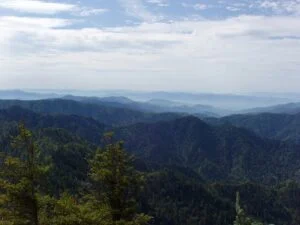Are wilderness programs successful for troubled youth? As a Parent Advocate and Family Consultant in the Teen Help Industry since 2001, there’s no secret -it’s a big business.
On a weekly basis we receive calls from parents that have parted with thousands of dollars after a conversation with someone that advises them that their teenager needs a wilderness experience. But how do you really know this? Take time to consider the following.
Wilderness programs — why are some people always so quick to say, “Your teen needs a good wilderness experience.”
-Defiant, disrespectful, rude?
-Vaping, doing drugs, drinking?
–ADHD, ODD, RAD, Bipolar
-Addicted to their smartphone, video-gaming?
-Refusing to go to school, skipping classes?
-Smart, but failing in school?
–Withdrawing from favorite interests?
-Struggling with depression or anxiety?
If you’re experiencing a few of these teen behavior issues, know you’re not alone.
Do you really understand what a wilderness program or wilderness therapy is? Do you understand that the majority of participants are asked to continue on to a Residential Treatment Center (RTC) or Therapeutic Boarding School (TBS) – which means your teen will be starting all over again with a new therapist as well as you paying all over again for start-up fees?
Why not start and finish in one place?
Some (if not most) Educational Consultants will tell you that your teen needs to be broken down first and wilderness can do that.
In reality, any quality RTC/TBS is designed to help with these types of teens. Some of these RTC’s and TBS programs actually have the first 21-30 days that are like a wilderness however your teen is working with the same team of counselors they will be working with for the next 6-9-12 months.
Another words – it’s one program without changing staff or campuses, and you won’t be paying second fees.
Myths and facts of wilderness programs
Myth: Many parents are led to believe that the majority of quality residential programs won’t accept a teen that hasn’t completed a wilderness program. That simply is not true.
Myth: Any teen that is using drugs needs to do a wilderness first. This is absolutely not true.
Myth: All teens do wilderness first, if not they won’t succeed. My educational consultant said so. Again, absolutely not true.
Fact: Wilderness programs are not necessary to enter a many quality therapeutic boarding schools and residential treatment centers.
Fact: Wilderness programs are an expensive band-aid. They will cost a family from $350-650 per day and the duration is about 4-9 weeks. The fact is — long lasting behavioral changes can’t take place in short-term programs. This is why the majority of students that attend wilderness programs transition on to a residential boarding school.
Consider this, it didn’t take 4-9 weeks to get to where you are today, it’s certainly not going to take 4-9 weeks to reverse that behavior – and have it stick!
In interviewing parents, since 2001, that have used wilderness programs – the feedback has been consistent. Although many students have good experiences – it was never enough to change behavior. If they had it to do over – they would opt-out and go straight to residential therapy.
Fact: Teens need consistency. Program hopping is not beneficial to anyone (except the programs that are being paid – and the professional you are paying). Finding the one residential setting that can offer your teen long-lasting changes is likely best for the entire family. In many cases, they also have parenting workshops that bring the entire family back-together.
Be an educated parent, you will make wiser and better financial decisions for your family and teenager.
Read: The Success Rates of Teen Help Programs.
Read: 5 Benefits of Boarding Schools for Troubled Teens.
###
Contact us for a free consultation if you would like more information on alternatives to wilderness therapy and wilderness programs.
Not every teen needs a wilderness program or wilderness therapy. You have choices.























"It was such a pleasure speaking with you today. Thank you for taking your time to tell me about those options. What a special person you must be to have chosen the type of work you are doing. I am sure there is a place in heaven reserved for you."